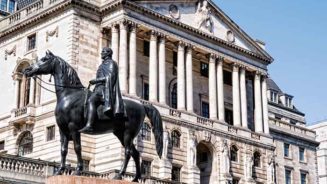This is not just chasing monetary policy. Klempster says holdings must look good in a variety of scenarios, rather than just in an environment of QE or lower interest rates.
He is enthusiastic about emerging markets, believing they are the most attractive valuation story in equity markets right now. The higher risk curtails his position but he continues to average into these markets.
Fixed income is a thornier issue, as it has been for many multi-asset managers. The group’s lower-risk Factor 3 fund has a weight of around 60% to fixed income (see table).

“For us it is about buying the right parts of the fixed-income market. Government bonds look extremely expensive and can only serve as a hedge against event risk. The chances of achieving a real return from traditional government bonds are relatively limited.
“Corporates are in a better position than governments in many cases. We are quite low on interest rate risk and low in duration,” says Klempster.
Credit spectrum
With this in mind, Klempster is exploring other parts of the fixed-income markets, including high yield, investment grade, emerging market debt and convertible bonds, which, he says, are much better priced. The portfolios are tilted towards the lower end of the credit spectrum, where he believes risks are better rewarded.
In general, he uses specific, targeted funds for this, rather than strategic bond portfolios. “We see good opportunities in this market environment and believe we can identify specialists.” However, for higher-quality bonds, he tends to use passives as there is less scope to add value.
‘Smart beta’ factor investing is increasingly popular, both as a source of effective diversification and as a way to draw out areas of structural growth in markets.
While holding individual factors, such as value, can create an uncomfortable ride for investors, Klempster says there is real value in holding diversified factor strategies, which allows him to access non-market directional sources of return to the portfolio.
Klempster recently topped up on UK commercial property holdings due to the market wobble that followed the vote on Brexit.
On the outlook for the UK economy, Klempster is sanguine, believing it is still relatively strong, Brexit notwithstanding. He says: “The UK stock market is really just a lot of global companies. However, there will be shocks and bumps along the road during the Brexit process and it would be naïve to think it could be plain-sailing.”
Globally, there are challenges as well. “The US cannot put interest rates up because the markets are spooked by it. We are starting to hear more talk of fiscal stimulus and it is clear we are some way from ‘escape velocity’. There are concerns on both growth and productivity,” he says.
Politics may seem the only game in town but the volatility it creates could be a smokescreen. Klempster feels the US election will unlikely have a big impact either way, given the unpopularity of both candidates.
There is more political risk on the horizon in 2017, with important elections looming in the eurozone, but markets are growing used to uncertainty.
Valuations are not cheap, he says, but neither are they expensive when global stimulus is factored in. Either way, a forensic focus on valuation will remain Klempster’s priority, with the aim of giving his investors a smoother ride to achieving long-term goals.




